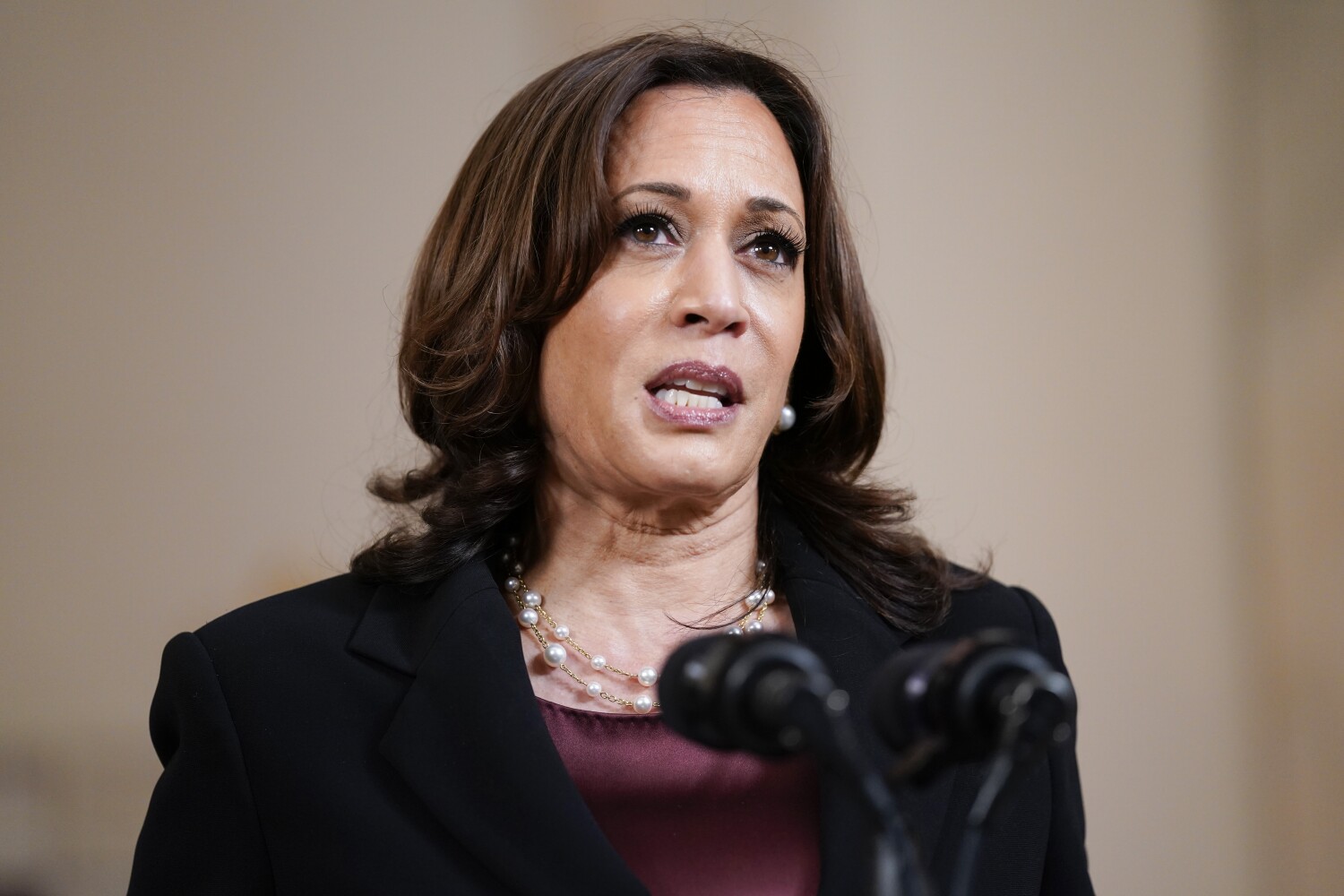Op-Ed: Kamala Harris’ border mission should be a Mexico mission too

[ad_1]

The Biden administration should avoid the Trump-era mistake of reducing the entirety of the U.S.-Mexico relationship to the single issue of immigration. The administration has made Vice President Kamala Harris its point person at the southern border, and she has been engaging with Mexico and Central American nations to embrace a regional approach to migration, which is laudable. But starting with her May 7 meeting with Mexican President Andrés Manuel López Obrador, announced over the weekend, the vice president should broaden the scope of her Mexico agenda to cover the complex array of economic, environmental, security, energy and rule of law issues that define the U.S.-Mexico dealings.
Mexico is heading in the wrong direction, and it is time for the United States to take notice and prioritize a relationship that is crucial to our common well-being. Because ties across the Rio Grande simultaneously involve so many sensitive foreign and domestic issues, the vice president is uniquely suited to coordinate Mexico policy. The role should be familiar to President Biden; it’s much like the one then-President Obama asked him to take on under the framing of a “High Level Economic Dialogue” between Mexico and the U.S. in 2013.
Harris’ immediate focus on migration is understandable given the situation at the border. But unauthorized crossings and asylum claims — it’s notable that Mexicans have once again overtaken Central Americans as the largest group being detained — are symptoms of other issues. To focus exclusively on the migration question is to heed the fever but not its causes.
It has become fashionable to point out the need for comprehensive policies when it comes to the forces pushing Central Americans north, but there are fewer such calls for a more expansive approach to our relationship with Mexico, which suffers from, or enjoys, depending on where you sit, inertia and complacency.
Engaging Mexico City on migration alone sends the wrong message. López Obrador got along well with Donald Trump because neither hyper-nationalistic leader poked around in the other’s business. AMLO, as he’s known, understood that so long as he did Trump’s bidding on migration — agreeing to allow Mexico to become the waiting room for asylum seekers and guarding his country’s southern border, for instance — the U.S. wouldn’t stop him from indulging his politics of nostalgic megalomania.
It’s hard to succinctly catalog López Obrador’s erratic and destructive policies. His government handled COVID-19 disastrously and now presides over the world’s third-largest reported death toll. He has stubbornly adhered to fiscal austerity in the face of the global pandemic, exacerbating the inevitable economic downturn.
Deploying informal referendums, the Mexican president has overturned development contracts, including one for Mexico City’s new airport and scared off foreign investment when he most needs it, and when Mexico could benefit from corporate America’s second thoughts about relying too heavily on Chinese supply lines.
On energy, López Obrador’s desire to re-create the glory days of Mexico’s oil and electricity-generating state monopolies is wreaking further havoc on the nation’s federal finances, the environment (is there any government on Earth more allergic to renewables?) and, again, on Mexico’s attractiveness to private investors (the preferences López Obrador has allotted state monopolies appear to violate provisions of the new USMCA trade deal).
López Obrador’s nationalistic rhetoric is a throwback to one-party rule in Mexico and the days before the U.S., Canada and Mexico agreed to a North American pact. He has cited “sovereignty” to justify rolling back security cooperation with U.S. authorities pursuing organized crime. In early April, his government and its supporters equated criticism of his attacks on press freedoms as an attempted “coup.”
And most worrisome in authoritarian terms, in advance of crucial midterm elections in early June, López Obrador and his Morena party are attacking the independence of Mexico’s Supreme Court and the highly respected institute that oversees Mexico’s elections.
To tune in even for a few minutes to the rambling daily news conferences López Obrador conducts is to get a taste of a leader desperate to deploy any half-truth, scapegoat or distraction to equate his political project of a “Fourth Transformation” with the Mexican people’s sole legitimate interest and desire. Thus any criticism of his government or himself is an attack on “the people.”
Harris, no matter how broad her portfolio, cannot solve all Mexico’s problems. But the White House cannot afford to write them off either. It needs to get back in the business of managing a relationship that still has untapped potential to benefit all of North America.
U.S. investors in Mexico need their government’s support in the face of López Obrador’s disrespect for the rule of law. Both countries have to recommit to treaty commitments, shore up democratic norms and fight common security threats.
Empowering Harris to oversee all aspects of the U.S.-Mexico relationship would elevate what otherwise could turn into debilitating low-grade issue-by-issue, department-by-department spats. Her leadership could resurrect a more holistic and strategic approach, aligning incentives for both countries and reclaiming the promise of closer ties among North American nations.
Andrés Martinez is a professor of practice at the Cronkite School of Journalism at Arizona State University and a fellow at the New America think tank.
[ad_2]
Source link
